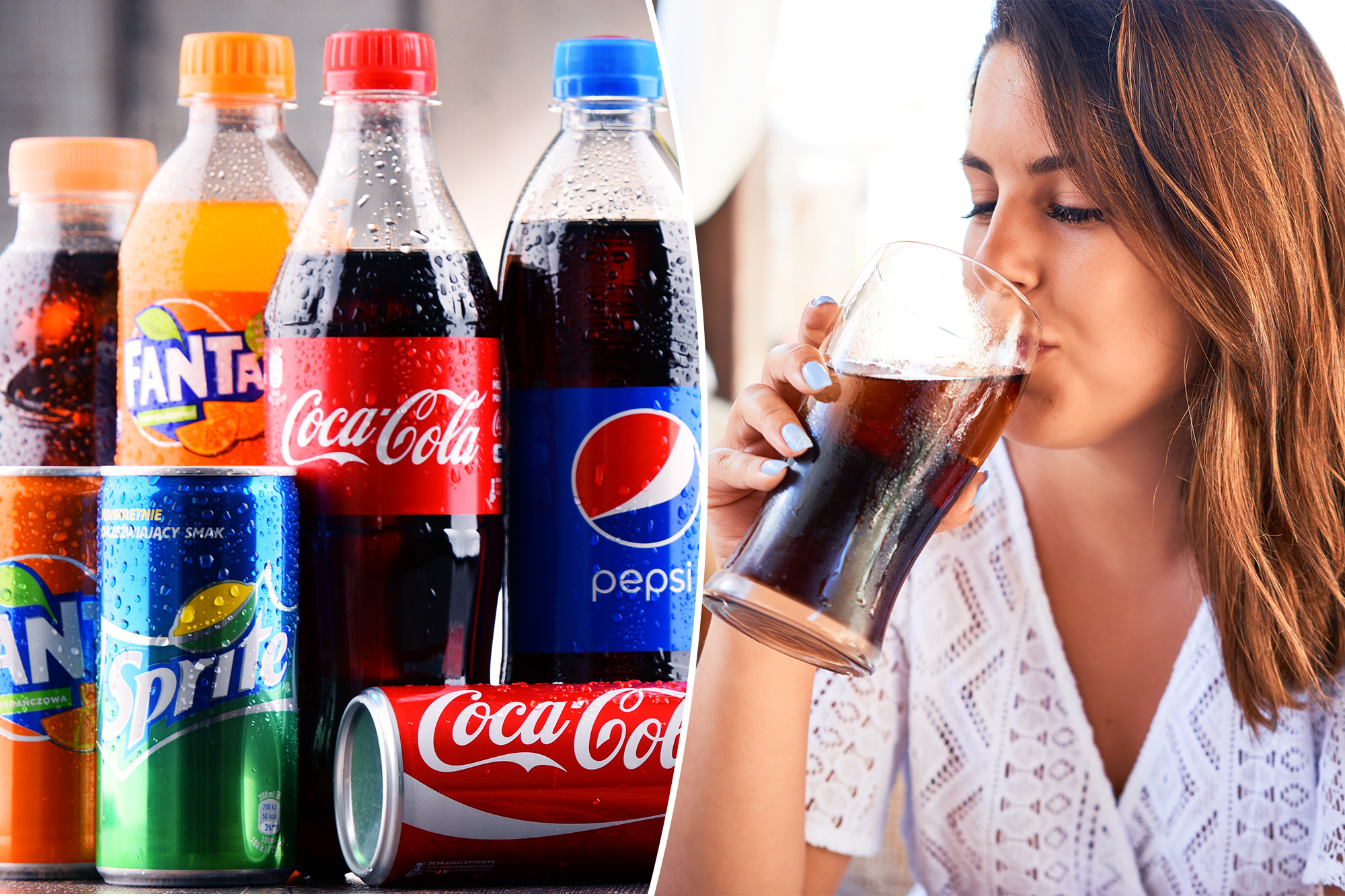
It can enjoy soda-litenic, but your favorite bubble drinks come at a price.
Doctors have long warned that sugar -filled drinks, loaded with calories, on a regular basis, can lead to problems such as bad teeth and swollen waist lines.
But drinking too much soda can also lead to an extremely painful painful medical condition that sometimes requires surgery to fix.
Urologist based in Brazil Dr. Thales Andrade looked the alarm after removing 35 kidney stones from the bladder of a man who lowered 2 to 3 liters of cola daily.
In a terrible video on Instagram, he showed a plate full of large, yellow stones while the patient lay behind him on the table.
What are the kidney stones?
They are difficult objects that form in your kidneys when substances in the urine – such as calcium, sodium sodium, oxalat and uric acid – get out of balance, according to the national kidney foundation.
When there are many of these particles and not enough liquid, they accumulate together and crystallize, creating stones.
Once formed, the stone can either stand inserted into the kidney or begin to travel below the urinary tract. Small stones can be quietly passed on to your fuel, but the larger ones can be stalled – causing the urine to be reserved and cause severe pain.
This jam also stops your kidneys from filtering waste properly. In those cases, doctors may prescribe medicines to relieve pain and help pass the stone – or recommend a procedure to break it or remove it.
Kidney stones are common in the US, where it is estimated that one in 10 people will have one in a moment of their lives. Yeardo year, they send more than half a million Americans to the emergency room.
What are the symptoms of kidney stones?
Kidney stones can be as small as a grain of rice or as large as a golf ball. A Sri Lankan man recently set a world record of Guinness with a 1.8 pound stone the size of a grapefruit.
In general, the greater the stone, the more obvious the symptoms are.
Symptoms may include:
- Severe pain on both sides of the lower back
- Stomach pain that does not go away
- Blood in the urine
- Nausea or vomiting
- Fever
- Urine that smells bad or looks cloudy
Why does soda ever lead to kidney stones?
“Drinking soda, especially those made with high fructose corn syrup, can increase the level of uric acid in the body,” told Kelsey Costa, a registered dietitian, said eat this! “This can make the crystals form in the kidneys, resulting in painful kidney stones.”
Phosphorus acid – a common ingredient in soda, especially Kola – also makes your kidneys more acidic, creating the perfect environment to form stones.
Moreover, caffeine in many soda acts as a diuretic, pushing you to dehydration, which can also help the stones develop.
A study conducted by the National Institute of Health found that people who again knock on one or more soda daily face a 23% higher risk of kidney stones compared to those who drink less than one who serve a week.
Sugar drinks such as artificial fruit coup can also increase your risk. This is bad news for 63% of Americans who drink sugar sweetened every day, according to CDC.
Good news: Cutting your back helps.
In one study, patients with kidney stones who gave up soda – specifically those containing phosphoric acid – shorten their chances to develop another 15%stone.
“Maintain adequate hydration and avoiding excessive soda consumption are essential measures for prevention,” said Dr. Andrade in his video. “Kidney health begins with the daily choices of what we drink.”
Which other factors can increase your risk?
Kidney stones most commonly affect men in the 1930s and 40s, but they can hit anyone at any age, including children, according to the Cleveland Clinic.
Dehydration increases your chances of stones, and also eats a lot of protein, salt, sugar, or taking large doses of vitamin C supplements.
Stomach or intestinal surgery can increase your risk, as may be certain medications, including some diuretics, calcium -based antacids and antisaisy drugs.
A family history of kidney stones increases your chances of getting them.
Some medical conditions also increase your chances of developing stones, including cystic fibrosis, diabetes, gout, high blood pressure, inflammatory intestinal disease and overweight.
#terrible #number #liters #soda #day #revealed
Image Source : nypost.com